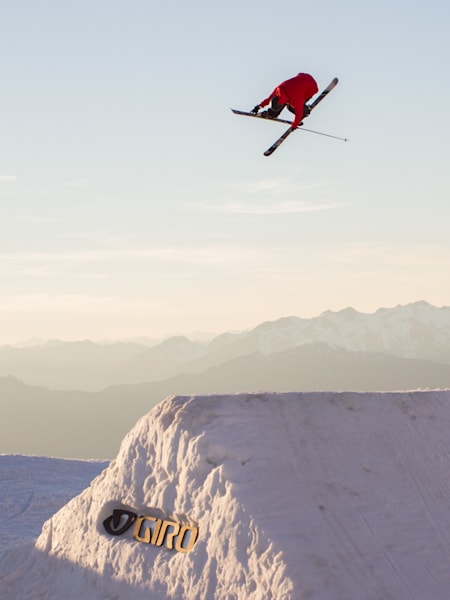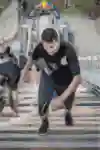To date, his comeback story from a serious spinal cord injury has inspired many. Despite a doctor’s prognosis that he would never walk again, he took his first steps within three months and within the year, he was able to return to the mountains and ski. With his new book “Never Part of the Plan”, he weaves between telling his own story and how we can all learn from that personal experience. Below, Mike unpacks five of his keys to shift fear into growth.
1. Embracing uncertainty
Drawing from a well of experience dealing with the unknown, Mike assures that it is part of the process on both an individual and societal level. “Uncertainty co-exists with progress and learning, and it is actually priming us for growth,” he says.
“Viewing it as an opportunity will help you push through. Once you surpass a limiting adversity, you experience success and rewarding endorphins on the other side. We are inherently resilient as a species, and we carry on through challenges.”
2. Acknowledging the process
While you can’t always change fixed circumstances, Mike learned to look for opportunities surrounding them during his recovery process.
“I worked extremely hard in the hospital to overcome challenges so I could have the physical abilities I have now," Mike explains. "Maintaining perspective throughout was really important, and realizing during that time that part of my process was working hard for others as well.”
The obstacle becomes the way, and you have to be able to clear the hurdle instead of avoiding it.
3. Pushing through the fear of failure
Grinning at the mention of it, Mike claims that he loves talking about the fear of failure and changing perspective surrounding it. “A lot of people are so paralyzed by the question, what happens if I fail? However, failure is actually an indication of progress,” he says.
Drawing inspiration from his time as a freestyle ski coach, he compares it to the process of landing a new trick on snow. “If you’re not trying and falling, you’re not learning and getting better. It is possible to fail forwards when you acknowledge failure as a critical aspect of progress.”
Mike recommends viewing things in a different light, saying that “it is the opportunity to level up through identifying skill gaps. Ask yourself why did this happen, and how can I change things next time? This is the way to gain the necessary skills you’ll need.”
4. Work ethic vs. working hard
Drawing on the experience of long days as a head park builder, Mike makes a clear distinction between discipline and hustle. He recommends using goal setting as a compass, and then kicking what isn’t working to the curb, if necessary. Once your vision is set, you can move on to the practical hard work. “Using something like a workout as a question -- is this getting me closer to my goal? Do I need to change anything? A yes or no answer simplifies where you should be focusing your hard work.”
Work ethic is like your moral compass, as discipline always trumps motivation -- it doesn’t wane.
5. The importance of gratitude
It is normal and natural to feel thankful when you’re winning and succeeding, but what about when the going gets tough? Although it feels counter-intuitive at times, Mike stresses the importance of gratitude as a consistent foundation and default mindset.
“You’re able to use it as a reset. You can default to the same things you’re grateful for during good times when things get difficult. When I was feeling low after my accident, when I was in the depths of grief, those were the moments I turned to gratitude. If I had been on top of the mountain before, I felt thankful and knew I could get back there again.”
Want to see more of Mike's inspirational story?

26 min
The Healing Agent
After suffering a catastrophic injury, pro skier Mike Shaw faces the biggest challenge of his life.
On December 16th, 2013, life as Mike Shaw knew it changed in an instant. Skiing in Keystone, Colorado, he had a severe accident in which he dislocated and broke his neck. Paralyzed from the neck down, he was told he might never walk again. Following him throughout his inspiring story of recovery and triumph, The Healing Agent documents his success in adjusting to a new way of life and finding his way back to the mountains. You can check out the film in the above player.














